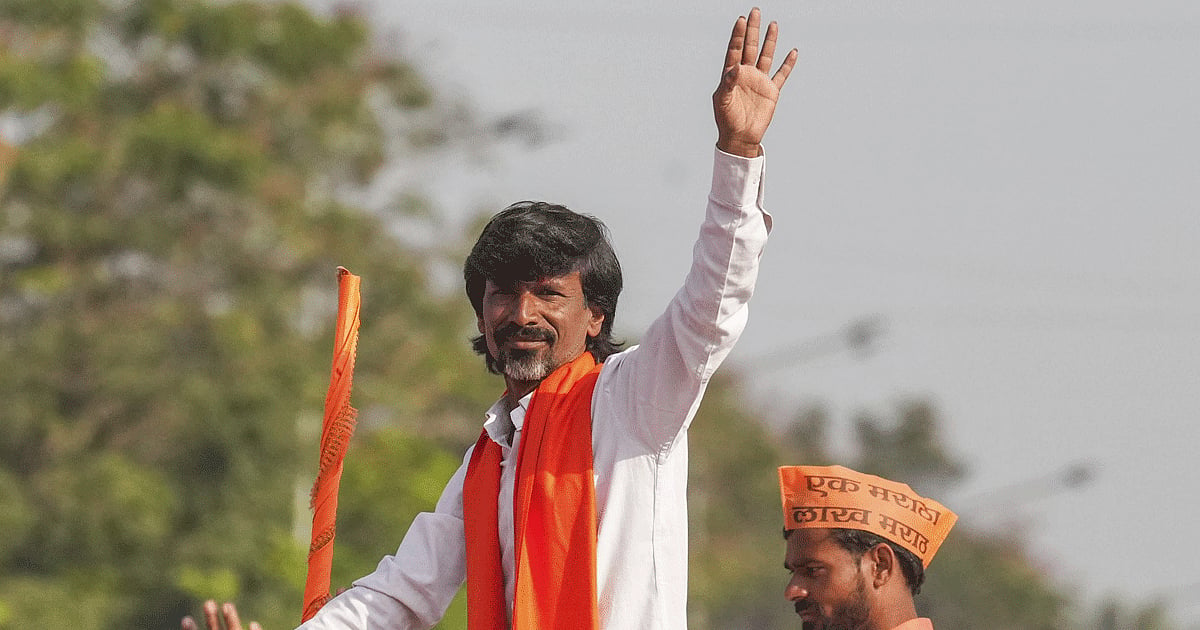 |
|
The ongoing Maratha quota agitation in Maharashtra, spearheaded by Manoj Jarange Patil, has once again taken center stage, with the commencement of a protest march from Sarati village to Mumbai. This demonstration underscores the persistent demand for permanent reservations for the Maratha community, a socio-political issue that has deeply impacted the state's landscape for decades. Jarange Patil's unwavering stance reflects the sentiments of a significant segment of the Maratha population who believe that reservations are crucial for their socio-economic upliftment. The march, expected to draw participation from over a lakh individuals, is a powerful display of solidarity and determination to pressure the state government to address their grievances. The core of Jarange Patil's argument rests on the historical and social similarities between the Maratha and Kunbi castes. He posits that Marathas, like Kunbis, are essentially a backward class and should be recognized as part of the Other Backward Classes (OBC) category. He points to historical evidence suggesting that both communities share a common lineage, with the distinction arising from their respective occupations – those engaged in warfare were known as Marathas, while those primarily involved in agriculture were identified as Kunbis. This assertion forms the bedrock of his demand for equitable treatment and inclusion within the OBC framework. The state government's attempt to dissuade Jarange Patil from initiating the march highlights the sensitivity and potential for disruption associated with the Maratha quota issue. Concerns over law and order, particularly in light of the approaching Ganesh festival, prompted the government to seek legal avenues to prevent the protest. However, the Bombay High Court's decision to grant approval for the march, albeit with limitations imposed by the Mumbai Police, acknowledges the fundamental right to peaceful assembly and expression of dissent. The court's ruling underscores the delicate balance between maintaining public order and upholding constitutional freedoms. The Maratha quota issue is far from a simple matter of arithmetic or legal interpretation; it is deeply intertwined with the complex tapestry of Maharashtra's social and political history. Understanding the historical context is essential to comprehending the nuances of the debate. The Maratha community, historically dominant in the state's political and social spheres, has experienced a gradual decline in its socio-economic standing over the past several decades. Factors such as land fragmentation, lack of access to education and employment opportunities, and the changing dynamics of the agrarian economy have contributed to a sense of relative deprivation within the community. This sense of deprivation, coupled with a growing awareness of the benefits accruing to other backward classes through reservations, has fueled the demand for inclusion in the OBC category. Previous attempts to grant reservations to the Maratha community have faced legal challenges, primarily due to the constitutional limit on reservations and the requirement to demonstrate exceptional backwardness. The Supreme Court has consistently upheld the principle that reservations should not exceed 50% of the total seats in educational institutions and government jobs, unless there are exceptional circumstances warranting a higher percentage. Additionally, the court has emphasized the need for empirical data and verifiable evidence to establish the backwardness of a community seeking reservations. The Maharashtra government has repeatedly attempted to address the Maratha quota issue through various legislative measures and policy initiatives. However, these efforts have often been met with legal hurdles and public dissatisfaction. The challenge lies in devising a solution that is both constitutionally sound and socially acceptable to all stakeholders. The ongoing agitation led by Manoj Jarange Patil underscores the urgent need for a comprehensive and sustainable resolution to the Maratha quota issue. It is imperative for the state government to engage in meaningful dialogue with representatives of the Maratha community and other relevant stakeholders to explore all possible avenues for addressing their grievances. A holistic approach that encompasses not only reservations but also measures to promote education, employment, and economic empowerment is essential for achieving long-term social justice and harmony. The issue also highlights the complexities of caste-based reservations in India. While intended as a mechanism for social justice and upliftment, reservations have often become a source of political contention and social division. The debate surrounding the Maratha quota is a microcosm of the broader challenges facing the Indian reservation system, including issues of definition, implementation, and the potential for perpetuating caste-based identities. A fundamental reassessment of the reservation system, with a focus on economic criteria and targeted interventions for the most vulnerable sections of society, may be necessary to ensure that it remains an effective tool for promoting social justice in the 21st century. The upcoming days and weeks will be crucial in determining the outcome of the Maratha quota agitation. The success or failure of the protest march, the government's response to the demands of the Maratha community, and the legal challenges that may arise will all shape the future of the issue. It is essential for all parties involved to approach the matter with a sense of responsibility, empathy, and a commitment to finding a solution that is fair, just, and sustainable for all.
Source: Maratha quota leader Manoj Jarange Patil begins protest march to Mumbai despite state opposition
